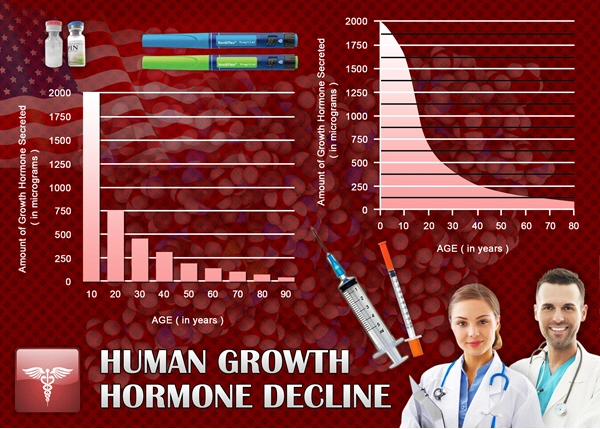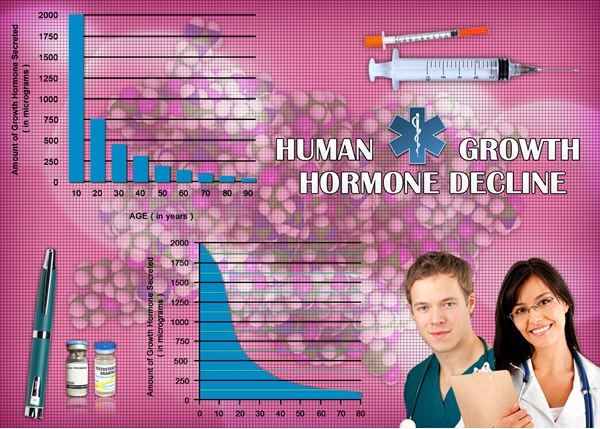Introduction to Bipolar Disorder
Bipolar disorder, a complex mental health condition, significantly impacts the lives of many American men. Characterized by extreme mood swings ranging from manic highs to depressive lows, this disorder can disrupt daily activities, relationships, and overall well-being. Understanding the nuances of bipolar disorder and exploring effective treatment options is crucial for men striving to manage this condition and lead fulfilling lives.
The Prevalence of Bipolar Disorder Among American Men
Bipolar disorder affects approximately 2.8% of the U.S. population annually, with men and women experiencing the condition at similar rates. However, the manifestation and management of symptoms can differ between genders. American men often face unique challenges, such as societal expectations of stoicism and self-reliance, which can complicate the recognition and treatment of bipolar disorder.
Recognizing the Symptoms
For American men, recognizing the symptoms of bipolar disorder is the first step toward effective management. Manic episodes may present as increased energy, reduced need for sleep, heightened irritability, and engaging in risky behaviors. Conversely, depressive episodes can manifest as persistent sadness, loss of interest in activities, and feelings of worthlessness. Identifying these symptoms early can lead to timely intervention and better outcomes.
Treatment Options: Medication
Medication is a cornerstone of bipolar disorder treatment. Mood stabilizers, such as lithium, are commonly prescribed to help manage the highs and lows of the condition. Anticonvulsants like valproate and carbamazepine may also be used to stabilize mood. For some men, atypical antipsychotics can be beneficial, particularly during manic episodes. It's essential for American men to work closely with their healthcare providers to find the most effective medication regimen, as individual responses can vary.
Psychotherapy: A Vital Component
In addition to medication, psychotherapy plays a critical role in managing bipolar disorder. Cognitive-behavioral therapy (CBT) can help American men identify and change negative thought patterns and behaviors. Interpersonal and social rhythm therapy (IPSRT) focuses on stabilizing daily routines and improving relationships, which can be particularly beneficial for men navigating the pressures of work and family life. Engaging in regular therapy sessions can provide men with the tools and support needed to manage their condition effectively.
Lifestyle Modifications
Lifestyle modifications can significantly impact the management of bipolar disorder. Regular exercise, a balanced diet, and adequate sleep are essential for maintaining mental health. American men should aim to establish a consistent daily routine, as disruptions in sleep and activity patterns can trigger mood episodes. Additionally, avoiding alcohol and illicit drugs is crucial, as these substances can exacerbate symptoms and interfere with treatment.
Support Systems and Community Resources
Building a strong support system is vital for American men with bipolar disorder. Engaging with family, friends, and support groups can provide emotional support and practical advice. Community resources, such as mental health organizations and online forums, offer additional avenues for connection and learning. Men should not hesitate to reach out for help, as a supportive network can make a significant difference in managing the condition.
Navigating Work and Career
For many American men, work and career are central to their identity and well-being. Managing bipolar disorder in the workplace can be challenging, but with the right strategies, it is possible to thrive professionally. Communicating with employers about the condition, seeking accommodations when needed, and prioritizing self-care can help men maintain their careers while managing their mental health.
Conclusion: Embracing a Holistic Approach
Managing bipolar disorder as an American man requires a holistic approach that encompasses medication, psychotherapy, lifestyle modifications, and strong support systems. By understanding the unique challenges and opportunities they face, men can take proactive steps toward better mental health. With the right treatment and support, it is possible to live a fulfilling life despite the challenges posed by bipolar disorder.

- Understanding and Treating Erectile Dysfunction: A Comprehensive Guide for American Men [Last Updated On: March 2nd, 2025] [Originally Added On: March 2nd, 2025]
- Optimizing Men's Health: Strategic Use of Supplements for American Males [Last Updated On: March 17th, 2025] [Originally Added On: March 17th, 2025]
- Top Modern Fitness Trends Transforming Men's Health in America [Last Updated On: March 18th, 2025] [Originally Added On: March 18th, 2025]
- Meditation's Impact on Men's Mental Health: Stress Relief, Resilience, and Well-being [Last Updated On: March 18th, 2025] [Originally Added On: March 18th, 2025]
- Osteoporosis in Men: Prevention and Management Strategies for Bone Health [Last Updated On: March 18th, 2025] [Originally Added On: March 18th, 2025]
- Stress and Heart Health: Impacts and Management Strategies for American Men [Last Updated On: March 18th, 2025] [Originally Added On: March 18th, 2025]
- Addressing Mental Health Stigma in American Men: Challenges and Strategies for Change [Last Updated On: March 19th, 2025] [Originally Added On: March 19th, 2025]
- Physical Activity's Role in Cancer Prevention for American Men: Strategies and Benefits [Last Updated On: March 19th, 2025] [Originally Added On: March 19th, 2025]
- Hydration's Vital Role in Men's Health: Benefits and Practical Tips [Last Updated On: March 19th, 2025] [Originally Added On: March 19th, 2025]
- Gut Health's Role in American Males' Wellness: Microbiome, Mental, and Cardiovascular Health [Last Updated On: March 20th, 2025] [Originally Added On: March 20th, 2025]
- Managing Allergies in American Men: Triggers, Strategies, and Workplace Solutions [Last Updated On: March 21st, 2025] [Originally Added On: March 21st, 2025]
- Gout in American Men: Causes, Symptoms, and Management Strategies [Last Updated On: March 21st, 2025] [Originally Added On: March 21st, 2025]
- Work-Life Balance Impact on American Men's Health: Strategies for Improvement [Last Updated On: March 21st, 2025] [Originally Added On: March 21st, 2025]
- Sleep Apnea in American Men: Symptoms, Risks, and Management Strategies [Last Updated On: March 21st, 2025] [Originally Added On: March 21st, 2025]
- Understanding and Overcoming Male Infertility: Causes, Diagnosis, and Treatment Options [Last Updated On: March 21st, 2025] [Originally Added On: March 21st, 2025]
- Mental Health Days: Essential for American Men's Well-being and Productivity [Last Updated On: March 22nd, 2025] [Originally Added On: March 22nd, 2025]
- Asthma in Men: Understanding Risks, Symptoms, and Tailored Management Strategies [Last Updated On: March 22nd, 2025] [Originally Added On: March 22nd, 2025]
- Dental Health's Crucial Role in Men's Overall Wellness and Life Quality [Last Updated On: March 22nd, 2025] [Originally Added On: March 22nd, 2025]
- Alcohol's Impact on Liver Health in American Males: Prevention and Management Strategies [Last Updated On: March 23rd, 2025] [Originally Added On: March 23rd, 2025]
- Dietary Strategies for Enhancing Prostate Health in American Men [Last Updated On: March 23rd, 2025] [Originally Added On: March 23rd, 2025]
- High Cholesterol in American Men: Risks, Management, and Prevention Strategies [Last Updated On: March 23rd, 2025] [Originally Added On: March 23rd, 2025]
- Swimming: Enhancing Men's Health from Heart to Mind [Last Updated On: March 23rd, 2025] [Originally Added On: March 23rd, 2025]
- Caffeine's Impact on American Men's Health: Benefits and Risks [Last Updated On: March 24th, 2025] [Originally Added On: March 24th, 2025]
- Strength Training: Enhancing Health, Mental Well-being, and Longevity for American Men [Last Updated On: March 24th, 2025] [Originally Added On: March 24th, 2025]
- Exercise Benefits and Strategies for Men Managing Diabetes [Last Updated On: March 24th, 2025] [Originally Added On: March 24th, 2025]
- Effective Strategies for American Men to Quit Smoking and Improve Health [Last Updated On: March 24th, 2025] [Originally Added On: March 24th, 2025]
- Obesity and Cancer Risks in American Men: Understanding and Mitigating the Link [Last Updated On: March 24th, 2025] [Originally Added On: March 24th, 2025]
- Dietary Fiber: Essential Health Benefits for American Men [Last Updated On: March 24th, 2025] [Originally Added On: March 24th, 2025]
- Kidney Stones in American Men: Causes, Symptoms, and Management Strategies [Last Updated On: March 25th, 2025] [Originally Added On: March 25th, 2025]
- Hemorrhoids in American Men: Causes, Symptoms, Management, and Prevention Strategies [Last Updated On: March 25th, 2025] [Originally Added On: March 25th, 2025]
- Proactive Health Strategies for American Men: Screenings, Lifestyle, and Mental Well-being [Last Updated On: March 25th, 2025] [Originally Added On: March 25th, 2025]
- Managing Anxiety in American Men: Tools and Techniques for a Healthier Life [Last Updated On: March 25th, 2025] [Originally Added On: March 25th, 2025]
- Social Connections: Vital for American Men's Mental Health and Well-being [Last Updated On: March 25th, 2025] [Originally Added On: March 25th, 2025]
- Sleep's Vital Role in Weight Management for American Men [Last Updated On: March 25th, 2025] [Originally Added On: March 25th, 2025]
- Seasonal Affective Disorder in American Men: Symptoms, Impact, and Management Strategies [Last Updated On: March 25th, 2025] [Originally Added On: March 25th, 2025]
- Stroke Risks and Prevention Strategies for American Men [Last Updated On: March 26th, 2025] [Originally Added On: March 26th, 2025]
- Annual Physicals: Essential for Men's Health and Disease Prevention in the U.S. [Last Updated On: March 26th, 2025] [Originally Added On: March 26th, 2025]
- Hiking: Enhancing Men's Physical, Mental, and Social Health in America [Last Updated On: March 26th, 2025] [Originally Added On: March 26th, 2025]
- Depression in Men: Symptoms, Treatment Options, and the Importance of Seeking Help [Last Updated On: March 27th, 2025] [Originally Added On: March 27th, 2025]
- Tai Chi Benefits for American Men: Health, Strength, and Mental Clarity [Last Updated On: March 27th, 2025] [Originally Added On: March 27th, 2025]
- Workplace Mental Health Initiatives: Enhancing American Men's Well-being and Productivity [Last Updated On: March 27th, 2025] [Originally Added On: March 27th, 2025]
- Plant-Based Diets: Health Benefits for American Men's Heart, Weight, and Mental Well-being [Last Updated On: March 27th, 2025] [Originally Added On: March 27th, 2025]
- Pilates Benefits for American Men: Core Strength, Flexibility, and Mental Health [Last Updated On: March 27th, 2025] [Originally Added On: March 27th, 2025]
- Arthritis in American Men: Understanding, Preventing, and Managing the Condition Effectively [Last Updated On: March 27th, 2025] [Originally Added On: March 27th, 2025]
- Stress and Digestive Health in American Males: Understanding and Managing the Gut-Brain Axis [Last Updated On: March 27th, 2025] [Originally Added On: March 27th, 2025]
- Breaking Stigma: The Crucial Role of Mental Health Screening for American Men [Last Updated On: March 28th, 2025] [Originally Added On: March 28th, 2025]
- Varicose Veins in Men: Causes, Symptoms, and Treatment Options [Last Updated On: March 28th, 2025] [Originally Added On: March 28th, 2025]
- Insomnia in American Men: Impacts, Strategies, and Solutions for Better Sleep [Last Updated On: March 28th, 2025] [Originally Added On: March 28th, 2025]
- Cycling Benefits for American Men: Enhancing Health and Well-being [Last Updated On: March 28th, 2025] [Originally Added On: March 28th, 2025]
- Diet and Heart Disease in American Men: Key Factors and Healthy Eating Strategies [Last Updated On: March 29th, 2025] [Originally Added On: March 29th, 2025]
- Routine Eye Exams: Essential for Men's Vision and Overall Health [Last Updated On: March 30th, 2025] [Originally Added On: March 30th, 2025]
- Environmental Pollution's Impact on Men's Health: Risks and Mitigation Strategies [Last Updated On: March 30th, 2025] [Originally Added On: March 30th, 2025]
- Antioxidants: Boosting Health and Preventing Disease in American Men [Last Updated On: April 1st, 2025] [Originally Added On: April 1st, 2025]
- Breaking the Stigma: Enhancing Men's Mental Health Through Education and Awareness [Last Updated On: April 2nd, 2025] [Originally Added On: April 2nd, 2025]
- Rowing's Rise: Health Benefits for American Men's Fitness and Well-being [Last Updated On: April 3rd, 2025] [Originally Added On: April 3rd, 2025]
- Migraines in Men: Symptoms, Triggers, and Effective Management Strategies [Last Updated On: April 5th, 2025] [Originally Added On: April 5th, 2025]
- Back Pain in Men: Causes, Prevention, and Management Strategies [Last Updated On: April 5th, 2025] [Originally Added On: April 5th, 2025]
- Community Impact on Men's Health: Social Connections, Programs, and Preventive Care in America [Last Updated On: April 6th, 2025] [Originally Added On: April 6th, 2025]
- Martial Arts: Enhancing Men's Health and Lifestyle in the U.S. [Last Updated On: April 6th, 2025] [Originally Added On: April 6th, 2025]
- Skin Cancer in American Men: Risks, Prevention, and Early Detection Strategies [Last Updated On: April 6th, 2025] [Originally Added On: April 6th, 2025]
- Alcohol and Mental Health: A Critical Analysis Among American Males [Last Updated On: April 8th, 2025] [Originally Added On: April 8th, 2025]
- Technology's Dual Impact on U.S. Men's Health: Challenges and Solutions [Last Updated On: April 9th, 2025] [Originally Added On: April 9th, 2025]
- Essential Vitamins for Men's Health: D, B12, C, E, K Benefits and Sources [Last Updated On: April 10th, 2025] [Originally Added On: April 10th, 2025]
- Obesity and Diabetes: A Critical Health Concern for American Men [Last Updated On: April 11th, 2025] [Originally Added On: April 11th, 2025]
- Hearing Health for American Men: Prevention, Impact, and Technological Solutions [Last Updated On: April 11th, 2025] [Originally Added On: April 11th, 2025]
- Running's Health Benefits for American Men: Cardiovascular, Weight, Mental, Bone, Diabetes [Last Updated On: April 12th, 2025] [Originally Added On: April 12th, 2025]
- Managing Panic Attacks in American Men: Symptoms, Strategies, and Support [Last Updated On: April 13th, 2025] [Originally Added On: April 13th, 2025]
- CrossFit: Enhancing American Men's Health Through Fitness and Community [Last Updated On: April 14th, 2025] [Originally Added On: April 14th, 2025]
- Managing IBS in American Men: Symptoms, Diet, Lifestyle, and Mental Health Strategies [Last Updated On: April 15th, 2025] [Originally Added On: April 15th, 2025]
- Transforming Men's Mental Health: The Power of Awareness Campaigns in America [Last Updated On: April 16th, 2025] [Originally Added On: April 16th, 2025]
- Joint Pain in American Men: Causes, Prevention, and Management Strategies [Last Updated On: April 17th, 2025] [Originally Added On: April 17th, 2025]
- Lung Cancer in American Men: Risks, Symptoms, and Prevention Strategies [Last Updated On: April 18th, 2025] [Originally Added On: April 18th, 2025]
- Basketball's Impact on Men's Health: Physical, Mental, and Social Benefits [Last Updated On: April 19th, 2025] [Originally Added On: April 19th, 2025]
- Soccer: Enhancing American Men's Health from Heart to Mind [Last Updated On: April 19th, 2025] [Originally Added On: April 19th, 2025]
- Diet and Mental Health: Key Nutrients and Strategies for American Men [Last Updated On: April 19th, 2025] [Originally Added On: April 19th, 2025]
- Family Support: Enhancing Health and Wellbeing of American Men [Last Updated On: April 19th, 2025] [Originally Added On: April 19th, 2025]
- Obesity and Heart Disease in American Men: Risks, Mechanisms, and Interventions [Last Updated On: April 20th, 2025] [Originally Added On: April 20th, 2025]
- Mental Health First Aid: A Lifeline for American Men's Well-being [Last Updated On: April 20th, 2025] [Originally Added On: April 20th, 2025]
- Socioeconomic Factors and Their Impact on Men's Health in the U.S.: A Comprehensive Analysis [Last Updated On: April 24th, 2025] [Originally Added On: April 24th, 2025]
- Rising Awareness: Breaking Stigma in American Men's Mental Health [Last Updated On: April 24th, 2025] [Originally Added On: April 24th, 2025]



List of USA state clinics - click a flag below for blood testing clinics.
Word Count: 614



















































